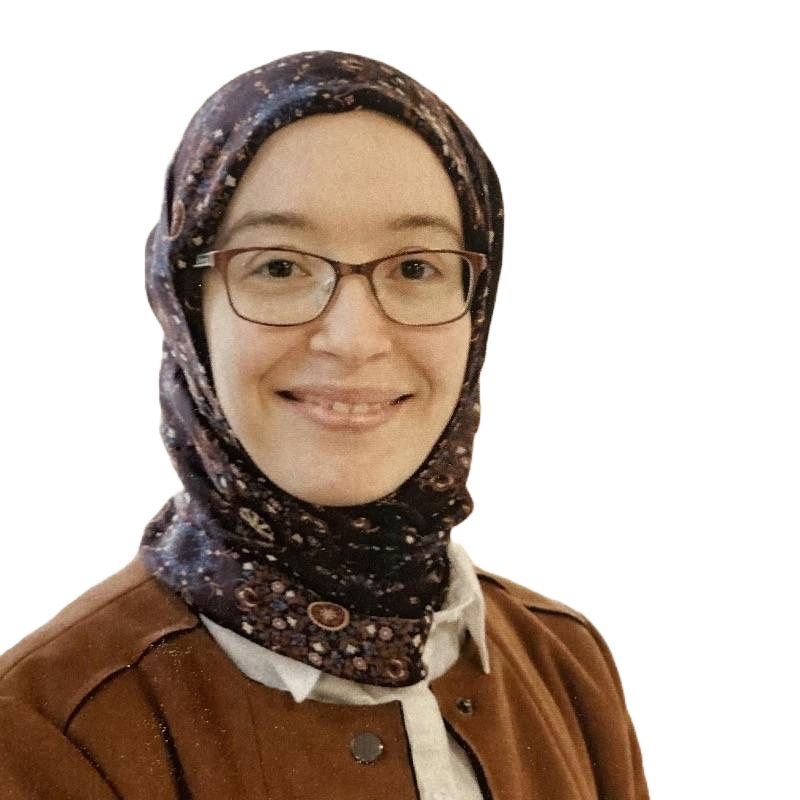TEAM
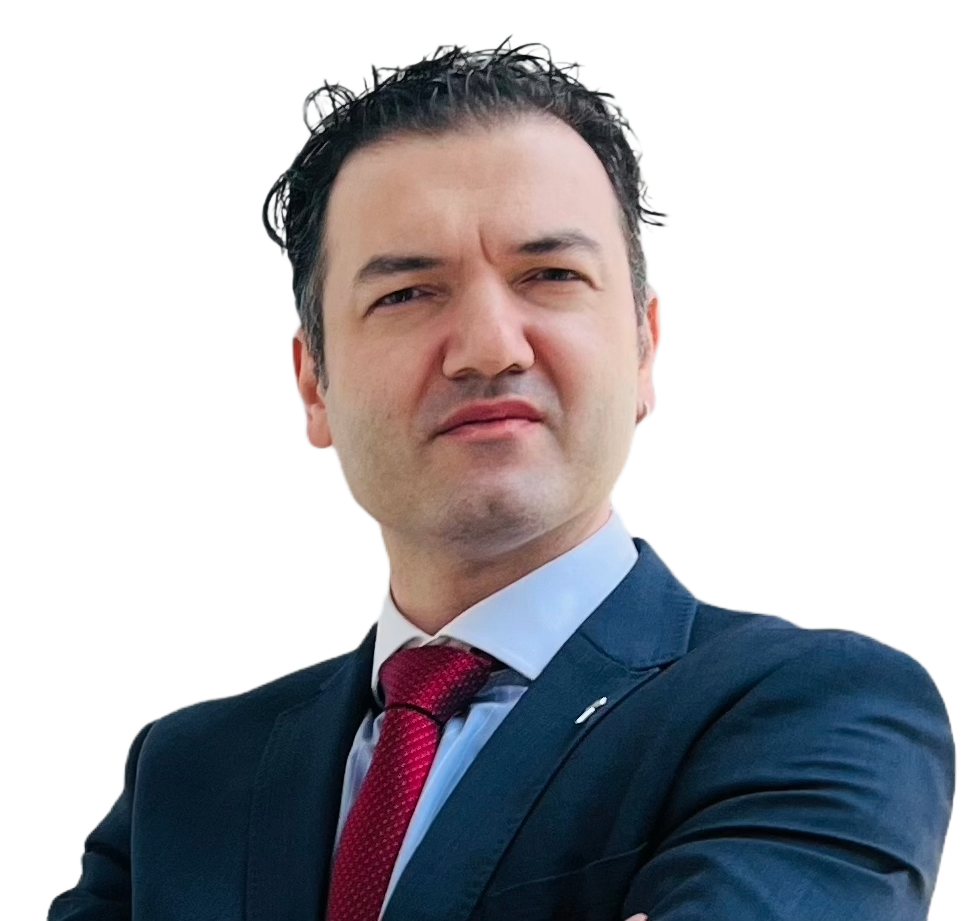
Sinan Guloksuz, MD, MSc, PhD
Principal Investigator
I am an Associate Professor of Psychiatry at the Department of Psychiatry and Neuropsychology, School for Mental Health and Neuroscience, Maastricht University, and the Department of Psychiatry, Specialized Treatment Early in Psychosis (STEP) Program, Yale University School of Medicine. I earned my MD degree from Gazi University, Turkey, and MSc and PhD degrees from Maastricht University, the Netherlands. My PhD project investigated the biological mechanisms of environmental stressors in psychosis, with a particular focus on the immune system. I am a proud alumnus of the psychiatry residency program at Bakirkoy Research and Training Hospital for Psychiatry, Neurology, and Neurosurgery, Istanbul, Turkey.
With a background in clinical psychiatry and epidemiology, my research focus has been on understanding the mechanisms underlying mental health outcomes and investigating the contribution of exposome and genome to multidimensional behavioral and cognitive phenotypes in the general population cohorts and large case-control samples (Athens FEP Cohort, EUGEI, EFPTS, EDSP, GROUP, TWINSCAN, NEMESIS-I/II, UK Biobank). The second body of my work has been in the areas of clinical trials and service research for psychosis spectrum disorder, in particular Early Detection and Prevention.
To bridge the gap between genetics and environment in psychiatric research and acknowledge the multiplicity of interconnected environmental factors, I have been the first investigator proposing the exposome paradigm for psychiatry and constructing a cumulative environmental score (environmental equivalent of polygenic risk score): the exposome score for schizophrenia. My team has successfully applied the exposome score for schizophrenia in several independent population cohorts and clinical samples to improve risk prediction and test gene-environment theories. To investigate Gene-Environment theories, my research team has applied novel methods such as digital phenotyping, network models, and machine learning to make multiple contributions in areas including gene-environment interactions, psychosis, and transdiagnostic phenotypes.
My work has resulted in over 180 peer-reviewed publications, 14 book chapters, and awarded with international prizes from the European Psychiatry Association, World Psychiatry Association, European Accreditation Committee in CNS, American Psychiatric Association, the Society of Biological Psychiatry, and 2024 Research Excellence Award of the Schizophrenia International Research Society. I currently serve as the Vice Coordinator and the Work-Package Leader (Data Inference) in the EU Horizon 2021 project: Gene Environment interactions in Mental health trajectorieS of Youth (Youth-GEMs) with a total budget of € 10 million and the Work-Package Leader (Gene-Environment Interaction) in the ongoing ZonMw-funded project: Outcome of Psychosis: Heterogeneity Explained by Long-lasting Individual Attributes (OPHELIA) with a total budget of € 1.5 million. We aim to integrate exposomic, genomic, and epigenomic data to execute the next phase of gene-environment research to provide clues for potentially modifiable factors and mechanistic understanding to transform the prevention and treatment of mental disorders.
My contribution to the international scientific community also includes ongoing active roles in professional organizations, such as the Schizophrenia International Research Society, as well as editorial roles, such as the Associate Editor of the Nature Mental Health Research and Journal of Dual Diagnosis, as well as the Editorial Board Member of the British Journal of Psychiatry, Frontiers in Psychiatry, and the PLOS One.

Lotta-Katrin Pries, PhD
Postdoctoral Associate
Lotta-Katrin Pries completed her Bachelor’s degree in Psychology at Maastricht University. This sparked her interest in mental disorders, leading her to follow a Master of Science in Cognitive and Clinical Neuroscience (specialization psychopathology) at Maastricht University. She conducted research on environmental impacts and mental disorders using large epidemiological datasets. Her PhD explored the interplay between environmental and genetic factors in psychosis: The interplay between the genome and the exposome in psychosis spectrum.
She has received prestigious awards from international organizations in psychiatric research. These include a poster award at the World Psychiatry Congress (2017), the Schizophrenia International Research Society (2021) Early Career Award, the Society of Biological Psychiatry’s (2021) Travel Award, and the ECNP Congress Excellence Award (2021). Following her PhD, she embarked on a postdoctoral fellowship with the support of a 2-year Kootstra Talent Fellowship at the lab. In 2021, she has received funding from the Niels Stensen Fellowship for a 1-year research project as an exchange postdoctoral fellow at Cardiff University, UK, focusing on genetic biological pathways and environmental exposures in psychosis spectrum disorders.
Currently, she is a Postdoctoral Associate at Maastricht University funded through EU-Horizon Youth-GEMs project Data Inference Workpackage. In the Exposome and Mental Health Research group, she leads the research focusing on sex- and gender-specific processes linking exposomic and genetic vulnerability to severe mental health outcomes.

Bochao Danae Lin, PhD
Postdoctoral Associate
Bochao Danae Lin holds a Bachelor’s degree in biology and a Master’s degree in medical genetics, both earned in China. She earned her Ph.D. degree from the Biological Psychology department of VU University Amsterdam in April 2017. Following her doctoral studies, she dedicated four years to post-doctoral research in the Translational Neuroscience department of Utrecht Medical Center.
Currently, Bochao Danae Lin serves as a Postdoctoral Associate at Maastricht University, supported by the EU-Horizon Youth-GEMs project Data Inference Workpackage. In her role with the Exposome and Mental Health Research group, she leads research initiatives that focus on the interaction between genetic and environmental factors. Her work includes exposome-wide association studies to explore risk factors associated with severe mental health conditions, such as psychotic experiences and childhood trauma.
Her diverse areas of interest span genetics, molecular biology, translational neuroscience, and genetic studies related to various psychiatric diseases, including schizophrenia, eating disorders, obsessive-compulsive disorder, autism spectrum disorder, and post-traumatic stress disorder.
Notably, she has authored more than 20 articles as the first author in respected SCI journals, including Nature Genetics, Jama Psychiatry, and Genes, Biomarkers in Medicine. Additionally, she has actively participated in various international academic conferences, earning prestigious awards from international organizations in psychiatric research, such as the Early Career Award from the Society of Biological Psychiatry in 2023 and the Schizophrenia International Research Society Early Career Award in 2024.

Angelo Arias, MSc
PhD student
Angelo completed his Bachelor of Science in Genetics at the Autonomous University of Barcelona in 2021. Motivated by a keen interest in mental disorders, he pursued further studies in Neurosciences, earning a Master’s degree from the University of Barcelona in 2022. During his Master’s, Angelo conducted his thesis research with the Genetics and Neurobiology of Psychiatric Disorders group at FIDMAG Research Foundation.
In January 2023, Angelo moved to Maastricht to join Dr. Guloksuz’s group as an intern. It was during this time that his interest in the role of the exposome and its connection to mental health was sparked. He became intrigued by the interplay between genetics and environment, and how this interaction influences the risk of developing mental health disorders.
Currently, Angelo is a PhD Student at the School of Mental Health and Neurosciences (MHeNs) at Maastricht University, proudly contributing to the “Exposome and Mental Health Research Group”. His research is focused unravelling gene and environment interaction, in order to advance our understanding of mental health conditions. His ultimate goal is to contribute to the development of preventative strategies, and personalizing treatment approaches, making a real difference in the field of mental health.

Sterre Kamphuis, MD
PhD student
Sterre holds a Bachelor’s and Master’s degrees in Medical Sciences, both earned at the VU University of Amsterdam. Embarking on a path as a medical doctor in psychiatry and addiction care, she encountered firsthand the complexities and nuances inherent in these conditions. Due to these experiences her fascination with the etiology and treatment of psychotic disorders blossomed, driving her aspiration for an academic pursuit in this field.
Seeking to make an impact, she proudly joined the “Exposome and Mental Health Research Group” as a PhD under supervision of Prof. Sinan Gülöksüz. Her research will be focusing on gene-environment interactions in the early course of psychosis, utilizing longitudinal data from the HAMLETT study (Home – Hamlett (umcutrecht.nl).
Her daily responsibilities encompass conducting study visits and various administrative tasks for the HAMLETT study in Utrecht, where she is primarily situated. Collaborating closely with diverse work packages within HAMLETT as well as the “Exposome and Mental Health Research Group”, she aims to serve as a conduit between these distinct approaches. This way she aspires to advance our understanding of gene-environment interplay and pave the way for tailored interventions.
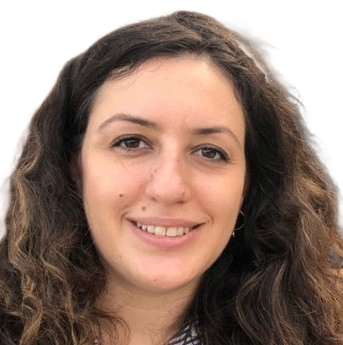
Ezgi Ince-Guliyev, MD
PhD student
Ezgi is pursuing a Ph.D. degree in schizophrenia research at Maastricht University, under the supervision of Prof. Sinan Guloksuz, while working in the Psychosis Research Program at the Department of Psychiatry, Istanbul University, Istanbul Faculty of Medicine with Prof. Alp Ucok. Her primary research and clinical interests revolve around early psychosis, high-risk groups for psychosis, and negative symptoms of schizophrenia.
She is an Assistant Professor of psychiatry at the Department of Psychiatry, Istanbul University, Istanbul Faculty of Medicine. She graduated from Hacettepe University Faculty of Medicine with an honors degree and completed her psychiatry training at her current institute with a thesis on effort-based decision-making in patients with recent-onset schizophrenia. During her residency, she collaborated with the Departments of Psychiatry and Computing Science at the University of Alberta for a machine learning project on the prediction of transition to psychosis in a clinical high-risk group. She also completed a master’s degree in affective neuroscience at a joint program of Maastricht University and the University of Florence, focusing on the structural neuroimaging of persistent avolition in patients with schizophrenia.

Melike Karacam Dogan, MD
PhD student
Melike Karacam Dogan, has been awarded by the Scientific and Technological Research Council of Turkey (TUBITAK Fellowship Funding) to join the Exposome and Mental Health Research Group for a year. She is currently working as a visiting researcher and PhD student under the supervision of Dr. Guloksuz, Dr. Fusar-Poli, and Dr. Prachason.
She completed her psychiatry residency at Hacettepe University, where her thesis explored the effects of clozapine on cortical inhibition in chronic schizophrenia patients using transcranial magnetic stimulation. This work earned her a research incentive award from the Psychiatric Association of Turkey.
Driven by a deep interest in the biological foundations of mental illness, Melike has been involved in several research projects focusing on neuropsychological assessments, neuroimaging, and the clinical manifestations of dementia. Her collaboration with the child psychiatry clinic on transition medicine for neurodevelopmental disorders, including autism, expanded her expertise in adult autism, particularly the subjective experiences of autistic individuals, fueling her interest in personalized medicine within psychiatry.
To broaden her understanding of subjective experiences and psychosocial factors, Melike completed a three-year training in dynamic supportive psychotherapy and is currently advancing her skills in psychoanalytic self-psychology. This training has significantly shifted her perspective, encouraging a more integrated approach to psychiatry that moves beyond the traditional “brain disease” model to incorporate the crucial role of environmental and psychosocial factors.
Her combined clinical and research experience has shaped a comprehensive approach to psychiatry, emphasizing the influence of modifiable environmental risk factors in mental health. Melike is dedicated to advancing research to promote public health through resilience-building interventions that aim to prevent the onset of psychiatric disorders.

Thanavadee Prachason, MD, PhD
Visiting Researcher
Thanavadee is a psychiatrist and researcher from Thailand, who is fascinated with molecular biology and its impact on human health. She her academic journey at Mahidol University, where she was awarded a prestigious scholarship through the Medical Scholar Program to pursue a B.Sc. in Medical Science, followed by a Ph.D. in Immunology and an M.D., all with remarkable achievements. Her Ph.D. thesis focused on identifying host response genes in patients with scrub typhus, providing her with valuable experience in molecular biology and translational research.
In the clinical years of her medical study, she was captivated by the art and science of psychiatry in keenly providing compassionate help with a holistic mind. With a strong determination, she pursued her specialization in psychiatry afterward and parallelly took a comprehensive two-year psychotherapy training course based on Satir Transformational Systemic Therapy. Such intensive clinical experience has deepened her insight into the interconnection between bio-psycho-social factors on mental health and also instigated her hopeful appreciation of the potential of human beings to thrive and become resilient amid unfortunate life adversities.
In early 2020, she joined the esteemed research group led by Prof. Sinan Guloksuz to expand her expertise in epidemiological research. Her primary focus centers on understanding differential sensitivity to environmental factors and uncovering the underlying pathways to resilience and mental ill-health. Her ambitious goal is to ultimately integrate interdisciplinary wisdom to develop a comprehensive framework that informs practitioners and society at large to promote personalized mental healthcare.
Presently, Thanavadee holds the position of Assistant Professor of Psychiatry at the Faculty of Medicine Ramathibodi Hospital, Mahidol University in Thailand. She maintains a strong collaboration with Prof. Sinan’s research group, continuously striving to advance the understanding and knowledge translation to improve individualized mental health care.

Laura Fusar-Poli, MD, PhD
Visiting Researcher
Laura Fusar-Poli graduated in Medicine and Surgery and obtained a Ph.D. in “Psychology, Neuroscience, and Medical Statistics” at the University of Pavia, Italy, with a thesis focused on the diagnosis of autism spectrum disorder in adulthood. During the doctoral course, Laura spent a period as Visiting Researcher at the Grieg Academy Music Therapy Research Centre in Bergen, Norway, where she studied the methodology of systematic reviews and meta-analyses and the applications of music therapy in mental health. After becoming board-certified psychiatrist at the University of Catania, Italy, she became Assistant Professor of Psychiatry (RTD-a) in the same university. Currently, Laura holds a tenure-track position (RTD-b) at the Department of Brain and Behavioral Sciences of the University of Pavia, Italy.
Since the residency program, Laura has been actively collaborating with the Exposome Mental Health Research group led by Prof. Sinan Guloksuz. Between 2020 and 2022, she has spent several months as Visiting Researcher at the Department of Psychiatry and Neuropsychology of Maastricht University, the Netherlands, to study gene-environment interactions in psychotic disorders, with a focus on cognitive functioning.
Laura has been awarded with several national and international prizes, including the early career psychiatrists Research Prize awarded by the European Psychiatric Association (EPA) and the Premio Nardini by the Italian Society of Psychopathology (SOPSI). In her free time, Laura plays classic guitar and trombone, enjoys every genre of music, and keeps on walking and travelling.

Vincent Paquin, MD
VISITING RESEARCHER, PHD STUDENT
Vincent Paquin is a psychiatrist and researcher from Montréal, Canada. His research aims to better understand how digital media such as social media and video games impact mental health. He seeks to develop approaches to evaluate and leverage individuals’ digital culture to promote recovery in the context of mental health care. To these ends, Vincent combines methods and theories from epidemiology, media psychology and cultural psychiatry.
He is pursuing a Ph.D. degree with a focus on digital media use and youth mental health within the context of social exposome at the Exposome Mental Health Research Group, Maastricht University.
Vincent graduated from medical school at Université Laval (Quebec City, Canada) in 2019 and is completing his psychiatry residency and clinician-investigator fellowship at McGill University (Montreal, Canada) in 2024-2025.
He has published over 30 peer-reviewed articles, including 17 as first author in various journals of psychiatry (JAMA Psychiatry, Schizophrenia Bulletin), psychology (Annual Review of Clinical Psychology), and medical informatics (JMIR Serious Games). He is supported by a Québec provincial award from the Fonds de recherche du Québec – Santé & Ministère de la santé et des services sociaux (FRQS-MSSS). He has received a number of recognitions, including the Early Career Award of the Schizophrenia International Research Society (2022), the Jacques-Genest Relève étoile award of the FRQS (2022), and the Annual Research Award of the Association of Canadian Psychiatry Programs (2023).
Vincent will be joining McGill University as Assistant Professor in the Division of Social and Transcultural Psychiatry, where he will launch a multidisciplinary research program on digital culture and mental health.
ALUMNI

Matteo Di Vicenzo, MD
Visiting Researcher, 2022-2023
Matteo Di Vincenzo spent a period at the lab between November 2022 and June 2023 to contribute to the research investigating gene-environment interaction on psychotic experiences in youth. He presented the findings at the European College of Neuropsychopharmacology (ECNP) Congress 2023 and published a first-author paper. He has been selected as a winner of the European Psychiatric Association (EPA)-Early Career Psychiatrists 2023 Scholarship Program and awarded during EPA Congress 2023 in Paris. He joined European Federation Psychiatric Trainees Forum 2023 in Zurich as Italian Delegate. He is a Psychiatry resident and a PhD student at University of Campania “Luigi Vanvitelli” in Naples, where he works under the supervision of esteemed Prof. Andrea Fiorillo, Prof. Gaia Sampogna and Prof. Mario Luciano. His main research topics are neuroinflammation in mood disorders, mental health problems during the perinatal period, lifestyle and mental health and psychopathological consequences of Sars-Cov-2 infection.

Gamze Erzin, MD, PhD
PhD Student, 2019-2022
Gamze Erzin was awarded by the Scientific and Technological Research Council of Turkey (TUBITAK Fellowship Funding) to join the Exposome and Mental Health research group. She completed her Ph.D supervised by Dr. Guloksuz and co-supervised by Dr. Pries: Utilizing exposome score for schizophrenia to predict mental health outcomes. During her time in the lab, she has been awarded with Early Career Award (Schizophrenia International Research Society), Early Career Investigator Award (Society of Biological Psychiatry), Excellence Award (European College of Neuropsychopharmacology), Research Prize (Psychiatric Association of Turkey), Research Prize (European Psychiatry Journal/European Psychiatric Association). She is now an Associate Professor of Psychiatry at the Department of Psychiatry, Health Science University, Dışkapı Yıldırım Beyazıt Training and Research Hospital, Ankara, Turkey.

Aysegul Yay Pence, MD
Visiting Researcher, 2020-2022
Ayşegül Yay Pençe has been a visiting researcher in the research group funded by the Erasmus+ Exchange Program. During this time, she actively contributed to studies exploring the influence of environmental factors on psychotic disorders, with a particular emphasis on gender differences, authoring a review article, and co-authoring two research articles.
Ayşegül completed her psychiatry residency training at Gazi University in Turkey. Throughout her clinical education, she was profoundly captivated by the intricacies of cognitive-behavioral therapy (CBT) and its potential to effect positive transformations in individuals’ lives. This fascination ignited her commitment to delve deeper into the realm of CBT and expand her expertise in this area. Aligned with her aspirations, she has completed her thesis that involved a comparative analysis of cognitive-behavioral therapy and mindfulness-based stress reduction (MBSR) groups, with a focus on their efficacy in managing stress among medical faculty students.
Ayşegül’s unwavering dedication to providing exceptional patient care drives her to actively seek opportunities for professional growth. She firmly believes that continuous self-improvement is essential to meet the diverse needs of her patients effectively. Driven by her ambition to excel in the field of psychiatry, she diligently keeps herself abreast of the latest research findings and treatment modalities.
Presently, Ayşegül has been accepted into the distinguished Medical Training Initiative Scheme in Manchester, United Kingdom, as an International Psychiatry Fellow. In this role, she seeks to gain valuable experience in various subspecialties and collaborates with experts from diverse backgrounds to integrate their invaluable insights into her practice. Ultimately, her goal is to contribute significantly to the advancement of mental healthcare and treatment approaches.
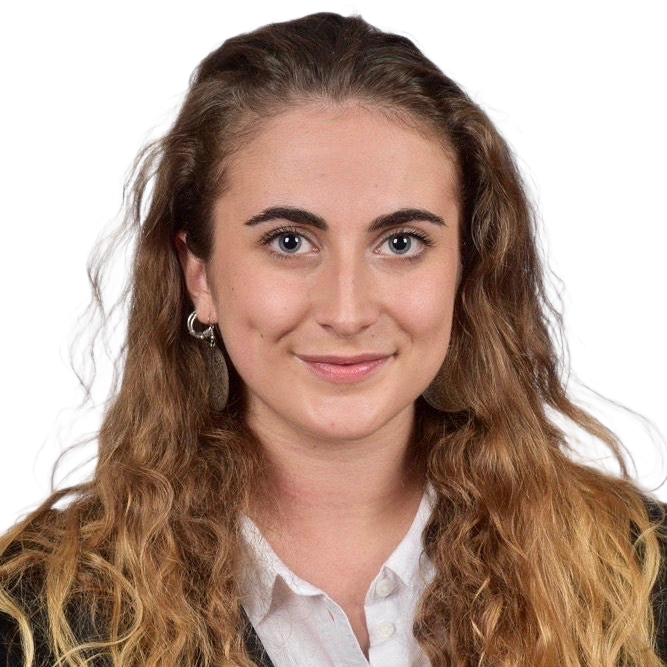
Nerea Moreno Gamazo, MSc
Student Intern, 2020-2021
Nerea has been a student intern in the research group funded by the Erasmus+ Exchange Program. During this time, she has completed her thesis that investigated whether gene-environment correlation might explain the association between childhood trauma and suicide ideation in a longitudinal general population twin cohort: “The association between childhood trauma discordance and suicide ideation among monozygotic and dizygotic twins.” She has presented the findings at the IASR/AFSP International Summit on Suicide Research Conference and authored a research article. She is now a PhD student supervised by Prof. Lourdes Fañanás Saura at the University of Barcelona.

Benson S. Ku, MD, PhD
Visiting Researcher, PhD student, 2022-2025
Benson Ku is an Assistant Professor in the Department of Psychiatry and Behavioral Sciences at Emory University School of Medicine. He serves as an attending psychiatrist in the Achieving Recovery through Resilience, Optimism, and Wellness clinic at Grady, and provides clinical care for young adults experiencing first-episode psychosis. Dr. Ku is currently funded by the National Institute of Mental Health K23 Career Development Award to investigate the impact of neighborhood characteristics on neurobiology and conversion to psychosis among youth at high-risk. His research provides a novel integration of multiple levels of investigation including public health, neuroscience, and developmental studies in humans to discover novel targets for intervention both at the individual and neighborhood levels to prevent or mitigate psychosis. Dr. Ku has obtained additional research training in psychiatric epidemiology from Dr. Sinan Guloksuz and Dr. Jim van Os. He completed his PhD thesis supervised by Dr. Guloksuz and Dr. van Os: The Associations Between Social Environment, Neurobiology, and Psychotic Disorders. Dr. Ku has won numerous research and teaching awards, and been invited to give presentations about his research and the social determinants of mental health at various national and international conferences. His research findings have been featured in Medscape, Healio, and American Psychiatric Association Daily Communications Newsfeed.
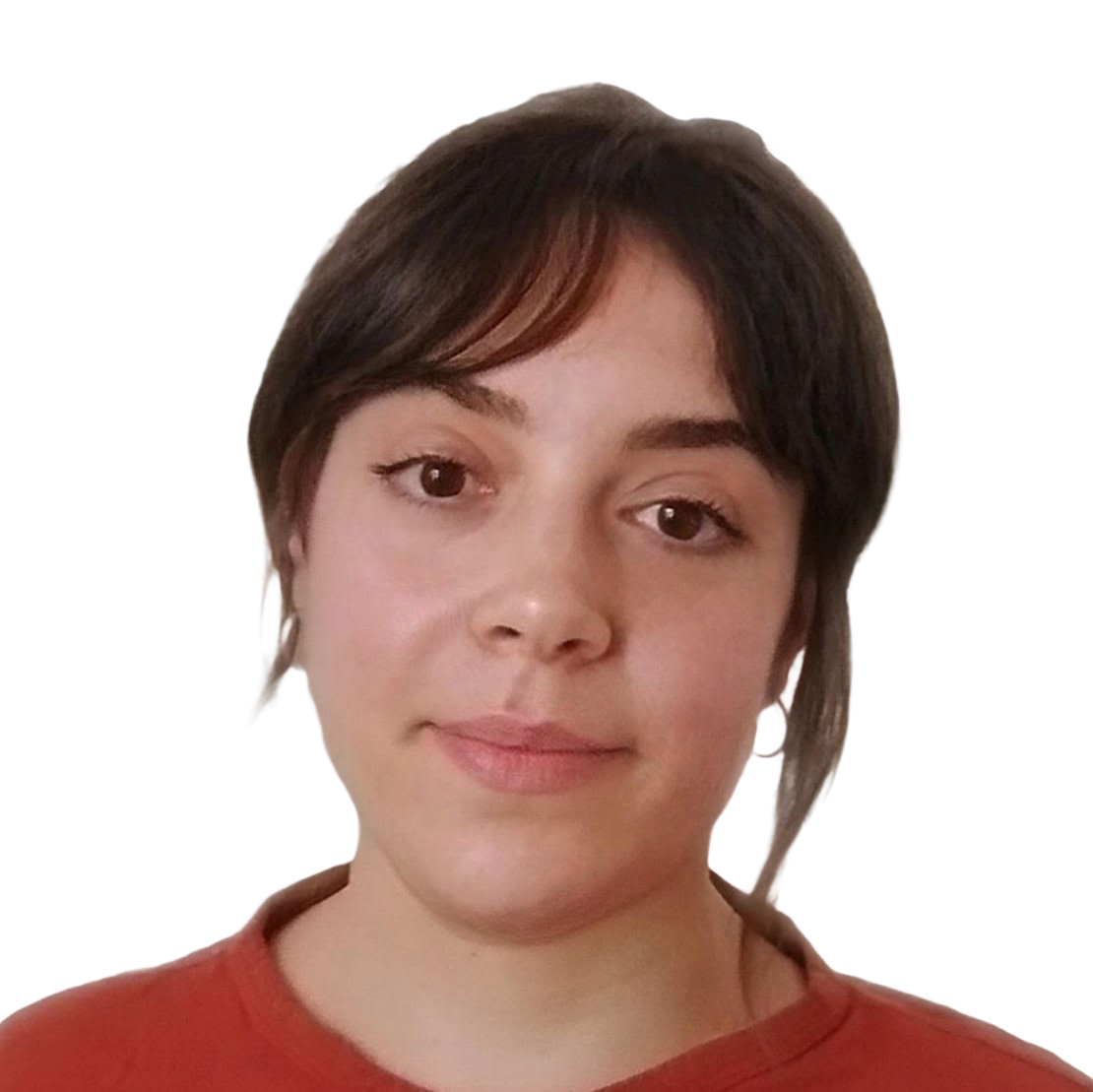
Pigi Chroni, MSc
Msc student, 2023-2024
Pigi joined the Exposome and Mental Health Research Group in 2023 as a student intern. She completed her MSc thesis supervised by Dr. Guloksuz and Dr. Schreiber to earn the MSc degree in Cognitive and Clinical Neuroscience, specializing in drug development, at Maastricht University. Her thesis has focused on childhood suicidality concerning ADHD treatment and comorbid conditions, approached from an epidemiological perspective.
Pigi holds a degree in Pharmacy from the University of Athens. To bridge the gap between medical and psychological aspects of mental health research, she is currently also following a bachelor’s program in Psychology at Panteion University. Her future aspirations involve pursuing a PhD in Pharmacoepidemiology to broaden her understanding of mental health, pharmaceuticals, and their interactions within a broader societal context.


